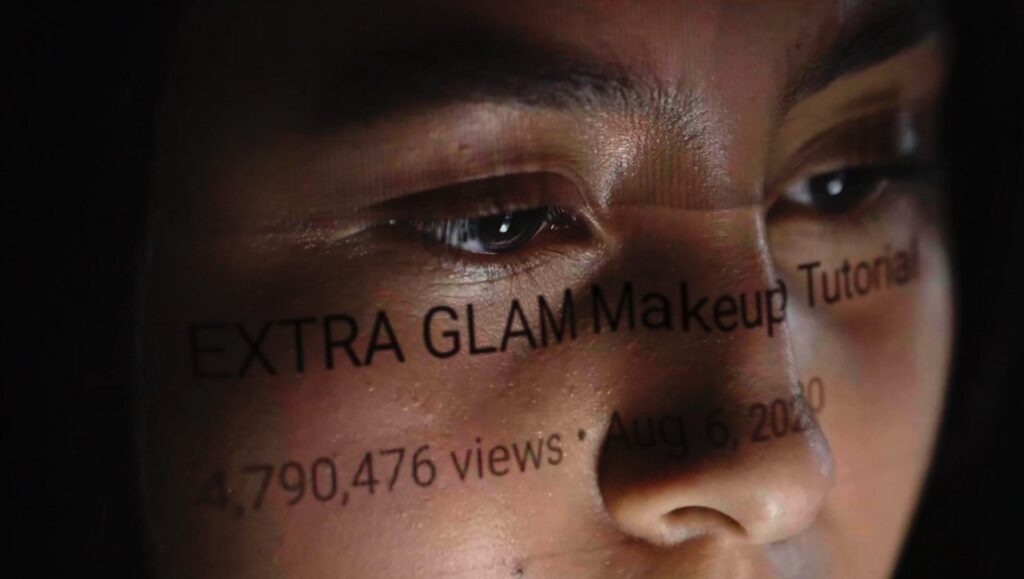Kids these days don’t even know what film, this emulsive material, is, as a talking head insipidly points out in Alex Winter’s strained and self-serious documentary The YouTube Effect. While it’s clear that Winter has made an effort to understand the rough shape of this new medium, with only a little smudging around the edges, there isn’t much talk of the way that YouTube has changed the culture of images. The difference film and YouTube has less to do with the material they are made of and method of viewing than it does with their context: a film, for example, no longer exists in the isolation of the cinema, but is intermingled within a huge collage of every other content type that people are bombarded with all the time.
There’s almost a sense of this gooping — of everything losing shape, meaning, and distinction when crushed together, something even Bo Burnham noticed — when Winter cuts from the Arab Spring to the high-pitched, low-rent comedy videos of FЯED. But he’s far too interested in YouTube’s “dark side,” so much so that once he gets the chance to talk about it, he never looks back. This seriousness is projected in all of his closeup, distorted, pixelated images, sometimes of explosions. Even some of the highly conventional talking-head interviews are handheld.
In fact, these interviews are so chopped up, switching between voices during these vaguely stylish montages, that they almost merge into a single voice: the film’s. Yet their numerous and porous contradictions aren’t harmonized — in an attempt to capture something unimaginably large — so much as they are ignored. Winter is interested in the big, general picture, so he (to his credit) doesn’t quite luxuriate in the gory details; he takes them seriously and tries to show the institutional incentives that lead to the kind of dangerous content that almost anyone familiar with the platform will already know about: from conspiracy theories to incels to those strange, algorithm-exploiting Spider-Man and Elsa clips.
It’s possible the director is trying to make a movie for the totally unaware, but in that broadness he allows too much to fall through the cracks. He’s right to put the fault, ultimately, in the hands of the eponymous platform — though his interview with CEO Susan Wojcicki is rather gentle — but he’s far too unquestioning of creators. He prints the scrappy amateur legend of Ryan’s ToyReviews/Ryan’s World — listening passively to the Mother’s story of using a green tablecloth, that they just happened to have already, as their first green-screen — despite the fact we see the parents prompting their child, who became a YouTube star at the age of three, with clearly pre-planned answers to the questions about his choice to make (and continue to make) videos.
Underneath this incoherence is an insecurity that’s reflected in Winter’s previous collaborator, Anthony Padilla, who talks about moving away from his comedian roots in the channel Smosh to produce more serious and important interview videos (though just a few weeks before this review, he announced his return to Smosh). Winter is so eager to engender a sense of hurtling toward the unknown, to give his unexceptional documentary a sense of prestige and import, that he obscures so much else. He all but ignores the way that the content YouTube has incentivized, and the ideology therein, has transformed over time. There really is no reason for him to show GamerGate after, and separate from, the Alt-Right. Either he was unaware of this well-documented link, or he was trying to create this sense of chaos artificially, revealing it, along with the film’s overall style and ideas, as totally forced.
Published as part of InRO Weekly — Volume 1, Issue 28.


Comments are closed.